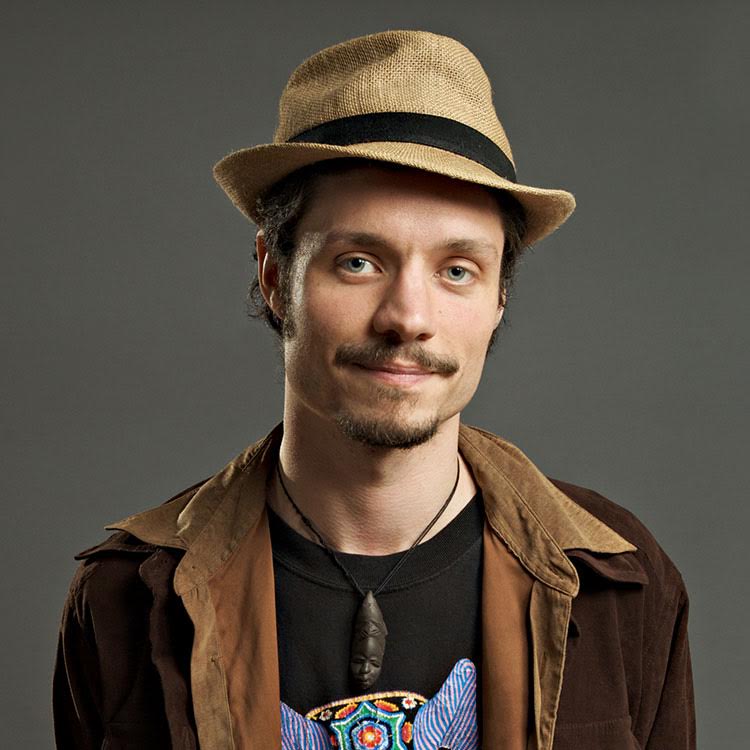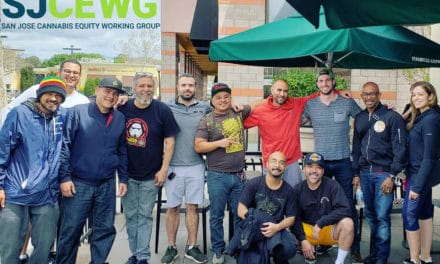
Jonathan Dickinson is the Executive Director of the Global Ibogaine Therapy Alliance (GITA) and a longtime advocate for ibogaine therapy.
Jonathan Dickinson is a longtime ibogaine advocate, with experience that ranges from working in ibogaine clinics in Mexico to being initiated in the Bwiti tradition in Gabon where iboga use originated. Today, Jonathan is the Executive Director of the Global Ibogaine Therapy Alliance (GITA) and oversees their efforts to push for continued ibogaine research and eventual legalization of ibogaine treatment for addiction therapy. In this interview, we speak with Jonathan about his experiences with ibogaine and the challenges that ibogaine providers and advocates face in a world where this incredible medicine is still largely illegal.
Thank you for taking the time to speak with us, Jonathan. Can you tell us about your introduction to ibogaine and the path that led to you becoming the Executive Director of the GITA?
Prior to ibogaine, I was working as the Outreach Coordinator for the Canadian Students for Sensible Drug Policy at their national office in Ottawa. I have a long-standing interest in psychedelic medicine, and also in traditional plant medicines, so I was involved in helping bring this discussion into the drug policy dialogues that we were hosting in Canada. In late 2009 I had the opportunity to attend a conference on ibogaine in Boston and was very impressed with everything I learned there.
For me, ibogaine brought together everything that I was learning about drug user rights and harm reduction along with my interest in psychedelic medicine and traditional spirituality. I also saw the clinics that were offering ibogaine detox as a grassroots model of psychedelic therapy centers, which was a vision that was articulated by Albert Hoffman and other luminaries in the psychedelic field. So I found work at an ibogaine clinic in Mexico called Pangea Biomedics where I worked for about five years. I also worked with a number of other providers and made a point of visiting as many centers as I could.
At various points along the way my not-for-profit and conference organizing background became useful. In 2012, I hosted a GITA meeting in Vancouver, where we established a board of directors and took the first steps towards building the organization into something more substantial than just a network of providers. I feel like now it’s playing a more and more important role in the community.
What are some of the legal and social challenges that ibogaine faces on the way to becoming a legal and accepted form of therapy?
In the early 1990s, thanks to Howard Lotsof, the National Institute on Drug Abuse (NIDA) in the US took a really serious look at ibogaine. They helped to fund some of the pre-clinical research and were preparing for some early clinical trials. Unfortunately, that was stopped for a number of reasons, and that’s partly why the use of ibogaine has started to expand in the way that we’ve seen, with the proliferation of clinics in Mexico and elsewhere around the world.
In order to start to approach NIDA and the FDA again, there needs to be some more supportive research to help build the case for putting it back on the table. Soon the Multidisciplinary Association for Psychedelic Studies (MAPS) is going to be publishing the results of several observational studies in which they followed people for one year after completing opiate detox with ibogaine. I think that those papers, and others to follow, will be helpful in eventually making that case.
But of course, one of the big barriers is the whole pharmaceutical development process, which is very intensive financially and politically. This is partly because ibogaine is natural so the structure itself can’t be patented, and many of the patents for various clinical applications have already expired. Also, ibogaine is not something that people need to take every day, and so for all these reasons the motive is simply not there for big profit-driven investors. It is possible to follow a not-for-profit development model, which requires a lot of support, and that’s something that we’ll consider.
This is also why we’ve seen things like the experimental prescription status in New Zealand, and the new bill being presented to the Vermont state legislature to open a non-profit clinic. These are efforts to tackle the problem in other ways. We now have over 30 years of clinical experience and know that this works better than anything else that is currently available. But since the financial barriers are so significant these kinds of legal reforms may end up being at least a part of how ibogaine therapy eventually gets integrated into modern society.
Ibogaine is best known in the West as an incredibly powerful addiction-interrupter, especially for opiate addicts, but it also has a long tradition of being used for personal development and psychological healing. Do you think the emphasis on ibogaine legalization should be centered around addiction therapy, or do you believe we should also advocate for its acceptance as a psycho-spiritual tool for self-betterment?
When you develop a medicine you need to show that it is the best available solution to a specific problem. Sometimes medicines that get approved for one use eventually find other off-label uses, but the research will usually focus on demonstrating one specific application.
The reality is that ibogaine is very impressive when it comes to opiate detox and there is nothing else quite like it. When you start to look at the self-improvement qualities of ibogaine, there are some fantastic results. But in some cases you can find similar results with other psychedelic medicines that are easier to use and don’t require the same kind of intensive medical screening and monitoring.
So yes, I think that there should be emphasis on these qualities of ibogaine, because you can see people turn around from major depressions and other long-standing psychological issues, and partly because I think that this plays a role in successfully treating substance use disorders. But in terms of advocacy and research, it still makes the most sense to put its application in detox at the forefront.
You are one of the few Westerners who has been initiated in the shamanic Bwiti tradition in Gabon where iboga use originated. What was that experience like, and how has it informed your work as an ibogaine advocate?
Yes, I was initiated last year at Ebando, a village on the outskirts of Libreville. For me, this was an extremely important experience. I had been working with ibogaine for five years, and I still felt a call to connect with its traditional use. I think the images, music, and stories that come from Bwiti communities inspire a lot of people on different levels and provide a depth to people’s understanding of what ibogaine is. A significant number of people even connect with this in their visions and find the room filled with African healers even though they’re laying on a bed in a clinic somewhere on the other side of the world. I think they are intrinsically connected.
Initiation was one of the most physically challenging experiences that I’ve ever been through, but also one of the most beautiful and meaningful experiences of my life. It has really become a new center point for my personal growth and especially for my work. I found a lot of richness and depth in that journey and hope to be able to continue to travel there and learn more in the future.
The ibogaine community is generally quite distinct from Bwiti communities, although there is some overlap. I’d like to eventually see a stronger bridge form between these two worlds, and I think that there is a lot that can be shared if it is approached in the right way. Certainly, my experience has made me more interested in issues of how the ibogaine community affects traditional practitioners, especially in regards to issues around sustainability, and that’s become an important part of my focus.
What are some of the current or upcoming projects that GITA is involved with, and how can people who want to get involved help your organization?
GITA recently published the 1st edition of the Clinical Guidelines for Ibogaine Assisted Detoxification. This was an effort to synthesize clinical experiences and research about risk management, and it’s been very well received. In the same vein of providing safety resources, we’re also working on creating the first Advanced Cardiac Life Support (ACLS) certification for medical professionals that are practicing ibogaine therapy.
That course is part of a much larger Global Ibogaine Conference that is being held in Tepoztlan, Mexico from March 14-16, 2016. We’re very excited about this event. It’s the 5th international conference that we’ve organized, but it is the first time that it has been open to a much larger public. It’s also the first time that so many experts from other fields of addiction treatment, harm reduction, drug policy, and medicine are all joining the discussion. This is a time of major changes in international dialogues about drugs, and very exciting to see this increasing interest in ibogaine.
People that want to be more involved should come and join us in Tepoztlan. But otherwise there are other ways to support us as well, from volunteering to making a donation or a pledge. We’re a growing organization and we’re very excitied about how many people are stepping forward to share and support this vision so far. You can find out more information and our contact information online at www.ibogainealliance.org.
Thanks for speaking with us, Jonathan!











Ibogaine has been tested and proven to be the most effective cure to drug addictions. Are you tired of your addiction to drugs, alcohol, cigarettes, etc. Email; [email protected], for details. Ibogaine is a new therapy for chemical dependence that eliminates physical withdrawal signs and interrupts drug craving behavior. It is both a therapeutic and psychoactive addiction-breaker. It helps in breaking both drug and alcohol addictions. Treatment info and all help needed will be provided.